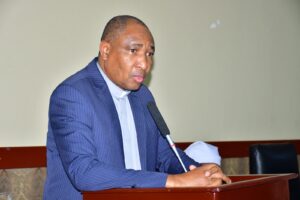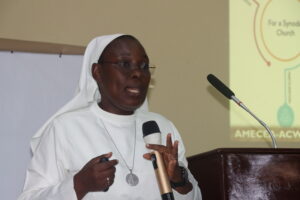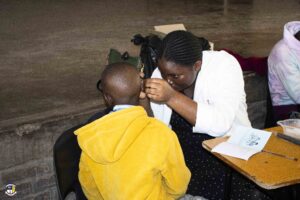MALAWI: Catholic University Urges Universities to be Problem Solvers

Catholic University of Malawi staff discussing on the Research Capacity Building
By Luke Bisani
Universities in Malawi have been urged to help solve challenges rocking the country as a way of fulfilling their mandates.
Speaking during a research capacity-building meeting held in Blantyre on Wednesday this week, the Dean of the Faculty of Science, who is also the High Education Institution (HEI) Lead Person at the Catholic University of Malawi, Mr. Innocent Chikopa, said universities are mandated to be problem solvers.
“In other countries, universities are there to help people solve problems affecting them through research and experiments that led to the discovery of vaccines and drugs, and we need to do the same here in Malawi; we need to provide solutions to problems affecting the people of this country,” said Chikopa.
In conversation with Mr. Chikopa, Director of Research and Publication at the University, Ms. Annie Sainala Kalebe said Malawian universities need to take research to a higher level to achieve excellence for better rankings.
Ms. Kalebe added that the Directorate of Research and Publication at the University has been geared toward research and publication by establishing a faculty-based research community that connects researchers, industry, and other institutions in Malawi and beyond.
During the research capacity building meeting, some deans of faculties, heads of departments, academic and administrative staff, and students at the university discussed a toolkit that will guide research capacity building, the research process, and outcome dissemination to increase and make research output more relevant.
The university is looking forward to having an Integrated Publishing Toolkit (IPT) that allows researchers to publish to the Global Biodiversity Information Facility (GBIF) database.
Through USAID’s Transforming Higher Education Systems project, which is being implemented by Michigan State University, the Catholic University of Malawi is looking forward to having an online platform that helps increase internship and employment opportunities among graduating students, a robust digital repository for research outputs, and increased access to tertiary education through the establishment of community Open and Distance Learning (ODL) centres across the country.


